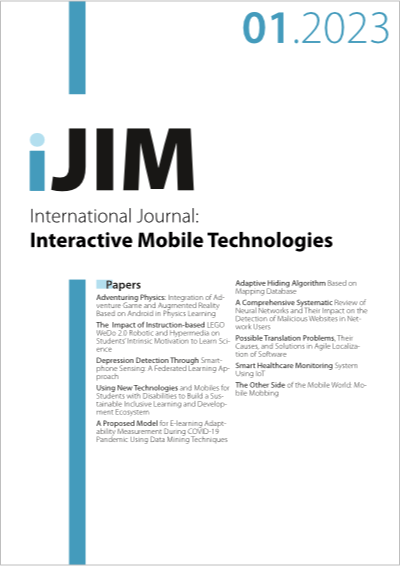Using New Technologies and Mobiles for Students with Disabilities to Build a Sustainable Inclusive Learning and Development Ecosystem
DOI:
https://doi.org/10.3991/ijim.v17i01.36359Keywords:
inclusion / e-inclusion, new technologies, students with disabilities, self-regulated learning, socio-emotional developmentAbstract
Nowadays, the educational policy, in many countries, promotes equal access for all students, including those with disabilities, to the general school, against all forms of social exclusion. Inclusion, in an innovative sense of the concept of diversity, focuses on the active participation and interaction of a heterogeneous student population in the general classroom. “E-inclusive” pedagogy refers to teachers’ decisions about the use of technology in the educational process with a view of compensating their developmental deficits and making functional use of their strengths. The aim of this paper is to propose tech tools and e-services for the access and active participation of students with sensory and motor disabilities in the educational procedures of the mainstream school and examine the role of teachers in realizing their inclusion / e-inclusion, as the main facilitators and modulators of the classroom settings to an open learning and development student-centered ecosystem. The results showed that teachers who accept as equal members of the school community all their students and incorporate flexibly new technologies into their teaching strategies to meet their unique needs, providing them with authentic opportunities for interaction and learning, contribute catalytically to their academic and social achievements, preparing them for substantial employment and integration opportunities in community life.
Downloads
Published
How to Cite
Issue
Section
License
Copyright (c) 2022 Eleni Karagianni, Athanasios Drigas

This work is licensed under a Creative Commons Attribution 4.0 International License.



